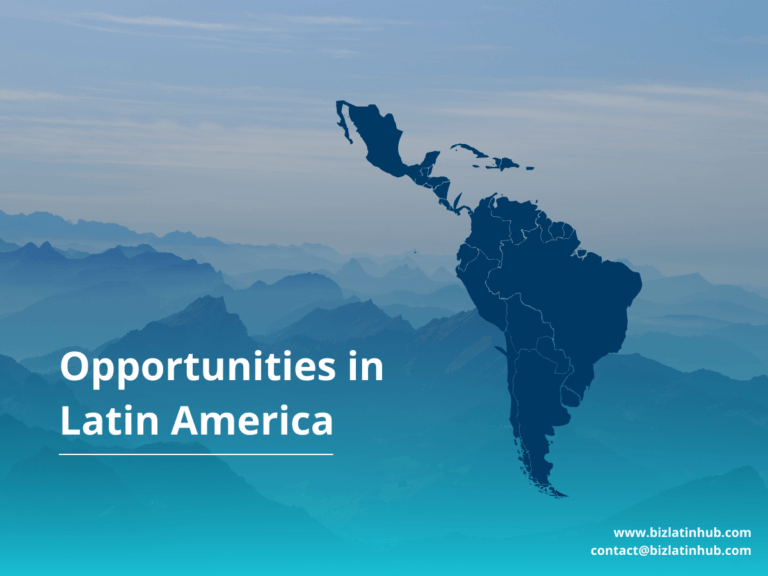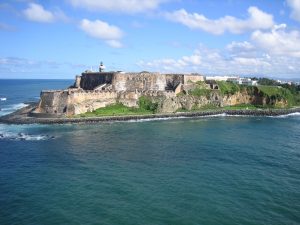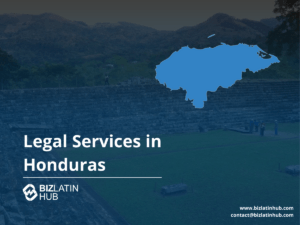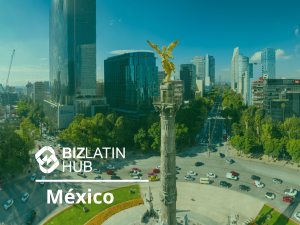Doing business in Latin America offers vast opportunities — but avoid these common mistakes to ensure success in 2025 and beyond. Learn how to navigate legal systems, cultural nuances, and regulatory pitfalls.
Doing business in Latin America in 2025 continues to offer high growth potential for foreign investors — but success requires careful planning and awareness of regional complexities. Doing business in Latin America offers a multitude of opportunities for entrepreneurs and corporations seeking to expand their global footprint. The region is opening up after years of protectionism and company formation in Latin America is increasingly attractive. However, there are some local specificities you should be aware of. Companies doing business in Latin America must account for cross-border compliance challenges, local labor rules, cultural differences, and operational risk across diverse jurisdictions.
Key takeaways on doing business in Latin America
| Is foreign ownership allowed in Latin America? | It is widespread, with occasional exceptions for national security sensitive industries or areas. All the countries we work in permit it. |
| Most important sectors in Latin America | This depends on a country to country basis, but primary resources, agriculture and manufacturing tend to dominate exports, while the service sector and tech are most powerful in the internal market. |
| Are there Free Trade Zones in Latin America? | Yes, most countries have a robust network, usually providing exemptions to income tax, customs duties, and/or VAT as well as specialized on-site support. |
| Incentives for Foreign Direct Investment in Latin America | This varies from country to country, but most have a trade bosy that is designed to encourage FDI in certian sectors or regions. On top of that, most countries treat foreign businesses equally to locals in legal terms. |
| International links | The Mercosur agreement in the Southern Cone is the biggest trade bloc, Mexico has links to the US and smaller organizations such as the Pacific Alliance and CARICOM exist. Countries such as Chile and Peru have a large number of free trade deals around the world. |
Why you should consider Latin America for business expansion
The region’s labor force statistics, as reported by CEPAL, show a robust workforce of 332 million people, with 274 million concentrated in urban areas. Projections indicate this urban workforce will expand to 337 million by 2050, highlighting the region’s increasing urbanization trend. Moreover, doing business in Latin America means benefiting from the region’s rich natural resources, which span from mining and agriculture to renewable energy sources.
Latin America’s growing middle class, coupled with increasing urbanization, creates a burgeoning consumer market that is ripe for investment. According to ECLAC’s latest economic report, the region’s economic outlook remains positive, with GDP growth expected between 2.3-2.5% for 2024, with Mexico and Central America leading this growth. Kingsley Gate Partners notes that decreasing interest rates are creating new investment opportunities across various sectors.
The business landscape is rapidly evolving, with digital transformation and e-commerce growth reshaping market dynamics. The OECD’s 2024 SME Policy Index for Latin America and the Caribbean highlights recent policy developments supporting SMEs and updated regulatory frameworks for the digital economy, which have created a more favorable environment for foreign businesses.
However, companies must carefully consider demographic shifts, including rapid population aging and changing urban-rural workforce distribution patterns, in their market entry strategies.
Latin America should be on your radar when considering your next destination for doing business. Doing business in Latin America offers a multitude of opportunities for entrepreneurs and corporations seeking to expand their global footprint. According to Macrotrends’ latest demographic data, Latin America and the Caribbean’s population reached 669.9 million people in 2024, with a growth rate of 0.75% annually.
The Economic Commission for Latin America and the Caribbean (CEPAL) reports that the region’s median age has increased to 31 years, reflecting significant demographic shifts that create both opportunities and challenges for businesses.
What are LATAM Free Trade Zones?
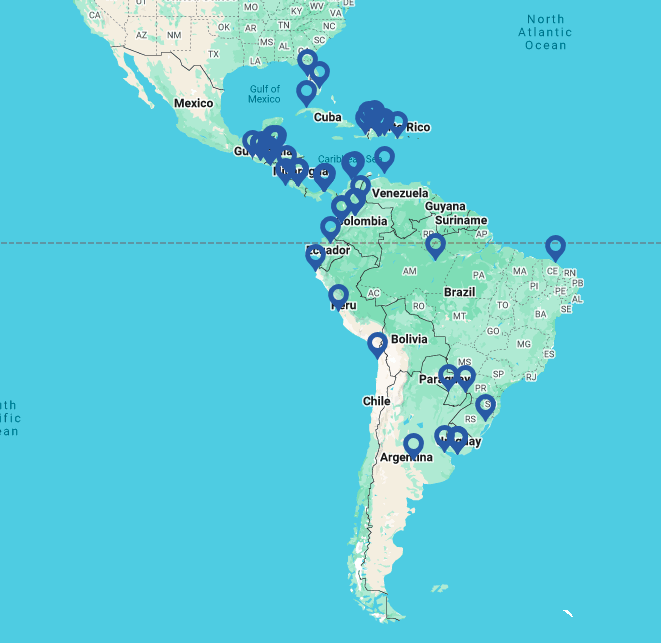
A Free Trade Zone (FTZ) is a limited geographical location where a company has fiscal, customs, and international trade incentives. There are a variety of incentives for operating in an FTZ depending on the country, but there are 3 reasons that generally apply to all of Latin America, including:
- Reduced or lower income taxes
- 0% Value Added Tax (VAT)
- 0% on Tariffs
FTZs seek to simplify government restrictions without stripping away governmental authority.
However, it still means it might be necessary to pay duties to the country of any of your exported goods. FTZs do not eliminate your obligation to pay duties on the products you export. What they do offer is a strategic place where you can store and manufacture your products and make changes to your inventory with the previously mentioned incentives.
Increasingly, FTZs are becoming the home of service providers as well as goods manufacturers and importer/exporters. Countries such as Colombia are explicitly targeting these types of companies in certain FTZs, even allowing remote work for part of the labor force.
Although the traditional focus of free trade zones was on removing restrictions such as tariffs on physical goods, their shift towards broader base tax incentives such as elimination of VAT/sales tax or reduced corporation/income tax work just as well for service providers. On top of that, some LATAM Free Trade Zones have more flexible rules for employment, especially with foreign hires.
Local Insight for 2025:
“Latin America” isn’t one-size-fits-all. Business culture, compliance, and risk tolerance vary by country — localize your approach in each market and lean on trusted bilingual partners to navigate the differences.
Avoid These Six Common Mistakes when Doing Business in Latin America:
We have put together our top 6 mistakes to avoid when doing business in Latin America. It could save you from committing some costly mistakes, and emphasize what areas might require more attention than you previously thought.
- Not localizing your product and services when doing business in Latin America.
- Ignoring how your marketing material translates.
- Only distributing through large multinational retailers.
- Forgetting to protect yourself from scams and theft.
- Only accepting card payments when doing business in Latin America.
- Not partnering with a local compliance expert.
1. Not localizing your product and services when doing business in Latin America
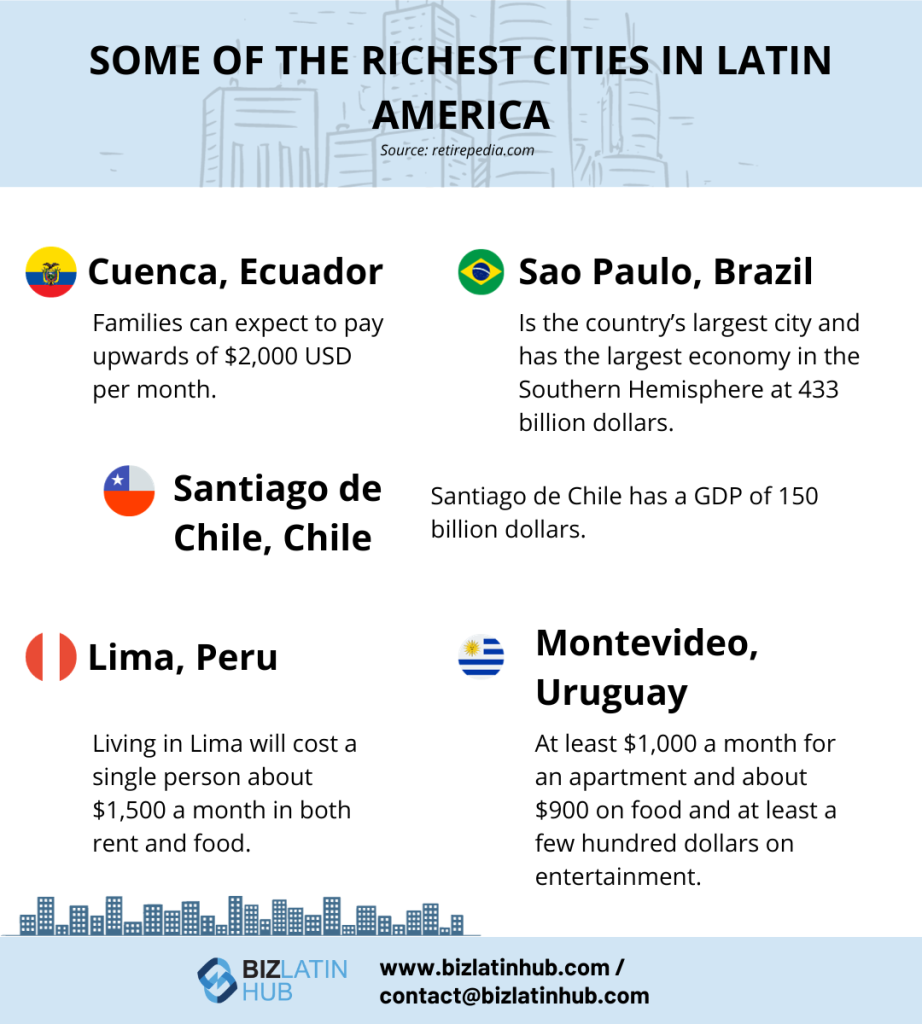
Localization is key. What country are you planning to do business in Latin America? Be specific as you will need to research the market. Your target demographic in Colombia may be very different to its counterpart in Peru.
Remember: Latin America isn’t one country, and localizing your product or service needs to reflect that. Every country has a different history, cultural norms and language.
In order for your customers to feel like you’re addressing their needs, you need to understand who they are. Market research will be your best friend here.
If you’re currently operating in another market, figure out how you might need to differentiate your current business model so you can tailor your offering to address specific in-country issues.
For example, health-focused startups in Brazil have addressed serious inadequacies within the Brazilian public healthcare system through innovative and accessible technology platforms.
You can’t afford to oversimplify product and service adaption when expanding your business to new markets if you want local consumers to notice you. A lack of local relationship-building is a common pitfall for executives doing business in Latin America — face-to-face interaction and trust-building remain essential to commercial success in the region.
2. Ignoring how your marketing material translates
Just because you may have had success with a marketing campaign in one country, does not mean it will work in another. There are numerous examples of multinationals blundering their market entry into a new country because of basic errors like this.
This also goes for your brand name and slogan. You may need to adapt them to make them work in a different language. Study and understand the history of the country as it’s important when trying to understand the culture and surrounding regional context when doing business in Latin America. Make sure you have someone local read over any translated content to make sure it doesn’t have a second meaning you’re unaware of.
On top of the actual content, consider the method and delivery of advertising materials. Where you previously may have had success through billboard advertising, you may now need to adapt and consider advertising underground if the dominant form of transport is the metro. You need to work out how best to reach your Latin American customers. Again, this will differ from country to country. Look to the market to see what is effective and what has the best reach. Also, look to see what’s missing and be innovative with your communication approach.
3. Only distributing through large multinational retailers
If you currently distribute your product through Walmart in the US, you might be thinking this could work for you when doing business in Latin America. In Mexico, Walmart owns 2,499 retail units. In Argentina, only 92.
Different countries are attracted to different distribution channels. Although Walmart has a huge presence in Mexico, many small towns still source their groceries from small corner shops known as abarrotes. Consumers may also distrust foreign or multinational retailers when buying goods and services. It’s a good idea to explore alternative distribution platforms and invest in local staff and customer service.
Get out there and in front of shop owners. You may find that smaller stores will want to meet you and your product face-to-face before they consider selling your goods. These first impressions are key. It’s great if you can speak the local language. If not, make an effort to learn some greetings and keywords. It will show you’re committed to creating a relationship and invested in the community. Go along with a local colleague who may have more experience negotiating in such situations.
Recent Success Stories and Market Developments
According to FasterCapital’s latest market analysis, the Latin American market continues to produce impressive success stories, particularly in the digital and technology sectors. Recent years have seen numerous regional startups achieving significant valuations and expanding across borders. The fintech and e-commerce sectors have been particularly dynamic, with several companies successfully attracting international investment and achieving market leadership positions.
Regulatory Environment and Compliance
The OECD’s 2024 SME Policy Index for Latin America and the Caribbean reveals significant improvements in the regulatory environment for businesses entering Latin American markets. New SME-focused policies across major markets have improved access to financing and reduced administrative burdens.
According to Biz Latin Hub’s regional analysis, the digital economy has seen particular attention, with updated frameworks addressing e-commerce, digital payments, and data protection. Foreign businesses should note the varying compliance requirements across different jurisdictions, particularly regarding:
- Digital services and e-commerce regulations
- Data protection and privacy laws
- Cross-border payment requirements
- Local corporate governance standards
Companies entering the market should work with local experts to ensure compliance with these evolving regulations while taking advantage of new opportunities in the digital economy. One of the most underestimated aspects of doing business in Latin America is failing to meet evolving corporate and tax compliance rules, which can vary greatly between countries such as Mexico, Colombia, and Peru.
4. Forgetting to protect yourself from scams and theft
Don’t let your firm be vulnerable. One virus has the capability to steal all your business data, as well as your customers. It’s important to take adequate fraud measures and invest in security software protection. For example, Riskified is a risk management solution that verifies and guarantees transactions. The platform even provides a 100% money-back guarantee in the event of fraud.
Insurance is also a great idea and while it may seem costly when you’re setting up, it will protect your physical assets in the long run. Consult local accountants and taxation specialists so your firm is correctly paying taxes. Some Latin American countries also require monthly tax returns so it’s important to focus on corporate compliance.
Make sure all government payments are deposited through official platforms and accounts. Paying through middlemen may end up seeing you pay more than you need to. Unfortunately, like many parts of the world, corruption is present in Latin America. Make sure you verify invoices and confirm with your local accountant that you’re being charged the right price.
5. Only accepting card payments when doing business in Latin America
Latin America has a higher unbanked population than many richer regions. You can’t afford to not offer alternative payment methods. Amazon has recently launched a new system called Amazon Cash, where Mexican consumers can deposit cash at selected convenience stores in order to obtain credit to spend on the website.
Walmart and Elektra have also installed kiosks throughout their stores that serve as a point of payment for online purchases. The result is a hybrid of online payments, which then open up an e-commerce platform to a larger consumer market.
Creating alternative and innovative ways to pay for online and in-store goods maximizes consumers’ use of technology and opens the door to new purchasing platforms.
6. Not partnering with a local compliance expert
For all the research you do, nothing can replace the input of local and experienced professionals when doing business in Latin America. There are certain things that are learnt with time so when you’re expanding your business into the region, it pays to partner with experts.
Your business will have the best chance of success when you have developed a strategy with in-country input. Local staff have the ability to leverage existing relationships and partnerships to accelerate your business growth. They can also help you create a realistic and achievable business plan, considering timelines for company incorporation and visa processing.
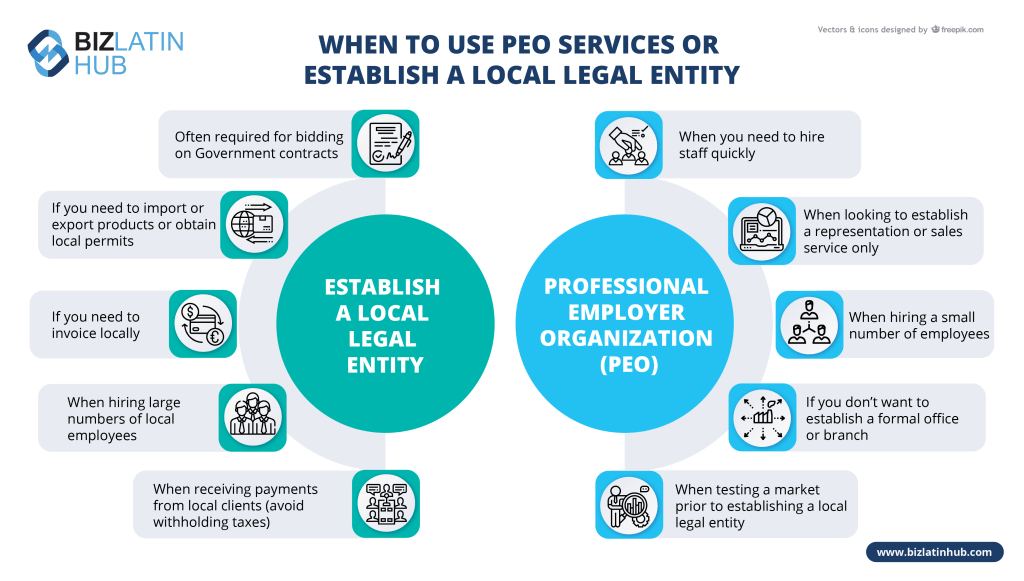
Why Latin America Remains a Top Growth Region in 2025
Despite occasional political and regulatory challenges, Latin America continues to be one of the most promising regions for foreign direct investment in 2025. From tech hubs in Mexico and Colombia to energy corridors in Brazil and Chile, investors are diversifying into Latin markets to access skilled labor, favorable time zones, and emerging consumer demand.
Key reasons for business growth in Latin America:
- Cost-effective nearshoring – Proximity to North America and time zone alignment make Latin America ideal for IT services, BPO, and manufacturing.
- Natural resources and energy – Argentina, Bolivia, and Chile are critical for lithium supply chains, while Brazil and Colombia lead in agriculture and oil.
- Digital transformation – A booming e-commerce and fintech ecosystem is unlocking demand for cloud services, payments, and logistics.
- Young, tech-savvy workforce – Countries like Mexico, Peru, and Costa Rica offer bilingual, educated professionals at competitive rates.
- Expanding middle class – Rising disposable income and urbanization are fueling demand in healthcare, education, food, and financial services.
Local Tip:
Success in Latin America depends on customizing your market entry strategy per country — what works in Chile may not work in Guatemala. Hire local legal advisors, and avoid assuming uniformity across the region.
FAQs on doing business in Latin America
Answers to some of the most common questions we get asked by our clients.
1. Can a foreigner own a business in Latin America?
Yes, a business can be 100% foreign-owned by either legal persons (legal entities) or natural persons (individuals) in every jurisdiction we operate in.
2. Are there Free Trade Zones in Latin America?
| A Free Trade Zone is a location where a company has fiscal, customs, and international trade incentives. There are a variety of incentives for operating in an FTZ depending on the country, but there are 3 reasons that generally apply to all of Latin America, including: Reduced or lower income taxes 0% Value Added Tax (VAT) 0% on Tariffs FTZs seek to simplify government restrictions without stripping away governmental authority. However, it still means it might be necessary to pay duties to the country of any of your exported goods. FTZs do not eliminate your obligation to pay duties on the products you export. What they do offer is a strategic place where you can store and manufacture your products and make changes to your inventory with the previously mentioned incentives. Increasingly, FTZs are becoming the home of service providers as well as goods manufacturers and importer/exporters. Countries such as Colombia are explicitly targeting these types of companies in certain FTZs, even allowing remote work for part of the labor force. AZFA is the regional organization that promotes these. Although the traditional focus of free trade zones was on removing restrictions such as tariffs on physical goods, their shift towards broader base tax incentives such as elimination of VAT/sales tax or reduced corporation/income tax work just as well for service providers. On top of that, some LATAM Free Trade Zones have more flexible rules for employment, especially with foreign hires. |
3. How long does it take to register a company in Latin America?
It takes two to 16 weeks to register and set up an operating company in Latin America, contingent upon the timely submission of all necessary documents and the sector/country you are in.
4. Which sectors are important in Latin America?
This depends on a country to country basis, but primary resources, agriculture and manufacturing tend to dominate exports, while the service sector and tech are most powerful in the internal market.
5. Does Latin America have trade agreements within itself or other regions?
The Mercosur agreement in the Southern Cone is the biggest trade bloc, Mexico has links to the US and smaller organizations such as the Pacific Alliance and CARICOM exist. Countries such as Chile and Peru have a large number of free trade deals around the world.
6. What entity types offer Limited Liability in Latin America?
The Sociedad por Acciones (S.A) and Sociedad de Responsabilidad Limitada (S.R.L) generally provide limited liability protections to their owners in the region.
7. What is the biggest mistake companies make when doing business in Latin America?
Underestimating legal and tax complexity — laws differ significantly by country, and non-compliance can delay operations or trigger fines.
8. Is Latin America still a good place for investment in 2025?
Yes. Despite political variations, the region offers nearshoring advantages, raw materials, and access to fast-growing digital and middle-income markets.
9. How can I enter multiple Latin American countries efficiently?
Work with a regional partner who can help centralize your compliance, HR, and tax obligations across multiple jurisdictions.
Do business in Latin America with Biz Latin Hub
At Biz Latin Hub we provide a full range of professional market entry and back-office services, including company formation and legal representation in Latin America. Our credible experience and demonstrated success have helped many clients successfully start and maintain their businesses throughout many Latin American countries.
Working with local partners will give your company the best chance of success when expanding to a foreign market. Biz Latin Hub supports foreign companies doing business in Latin America with legal representation, entity formation, tax compliance, and bilingual HR and back-office services.
Contact us now, or visit our website at bizlatinhub.com to see how you can get your business started today.

